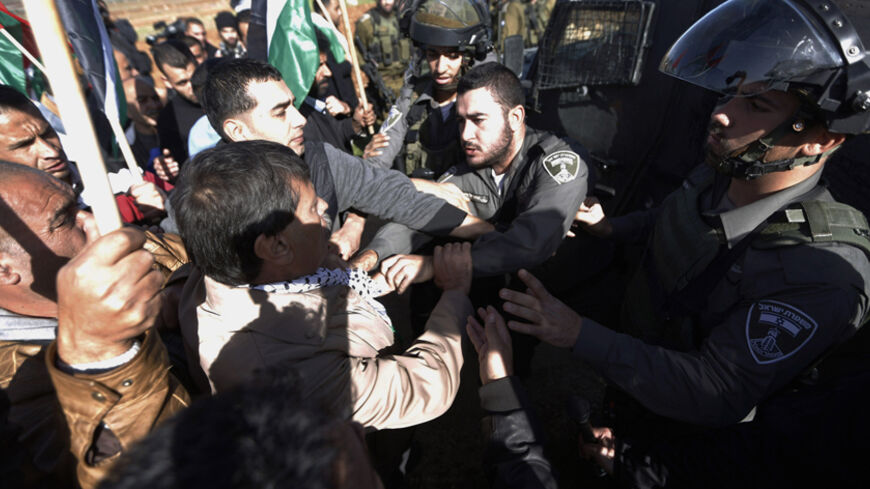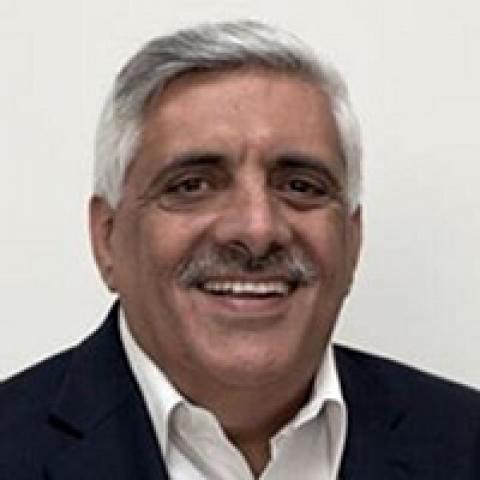The death of senior Palestinian official Ziad Abu Ein, while he attempted to plant olive trees in Palestinian territory, is sure to reignite calls for a major discussion of Palestinian resistance tactics and strategies. Palestinian nonviolent efforts have been going on for years without producing concrete results.
At a time when negotiations had reached a dead end and armed resistance had proven extremely costly in human and other terms, an alternative strategy was sought. Palestinian President Mahmoud Abbas and others in the Palestinian national camp advocated nonviolent popular struggle as the most effective means to force Israel to end its 47-year occupation. The Israelis, who recognized how lethal responses to popular protests fueled the first intifada, have confronted the various efforts with just enough violence to try to deter, but without major fatalities.



